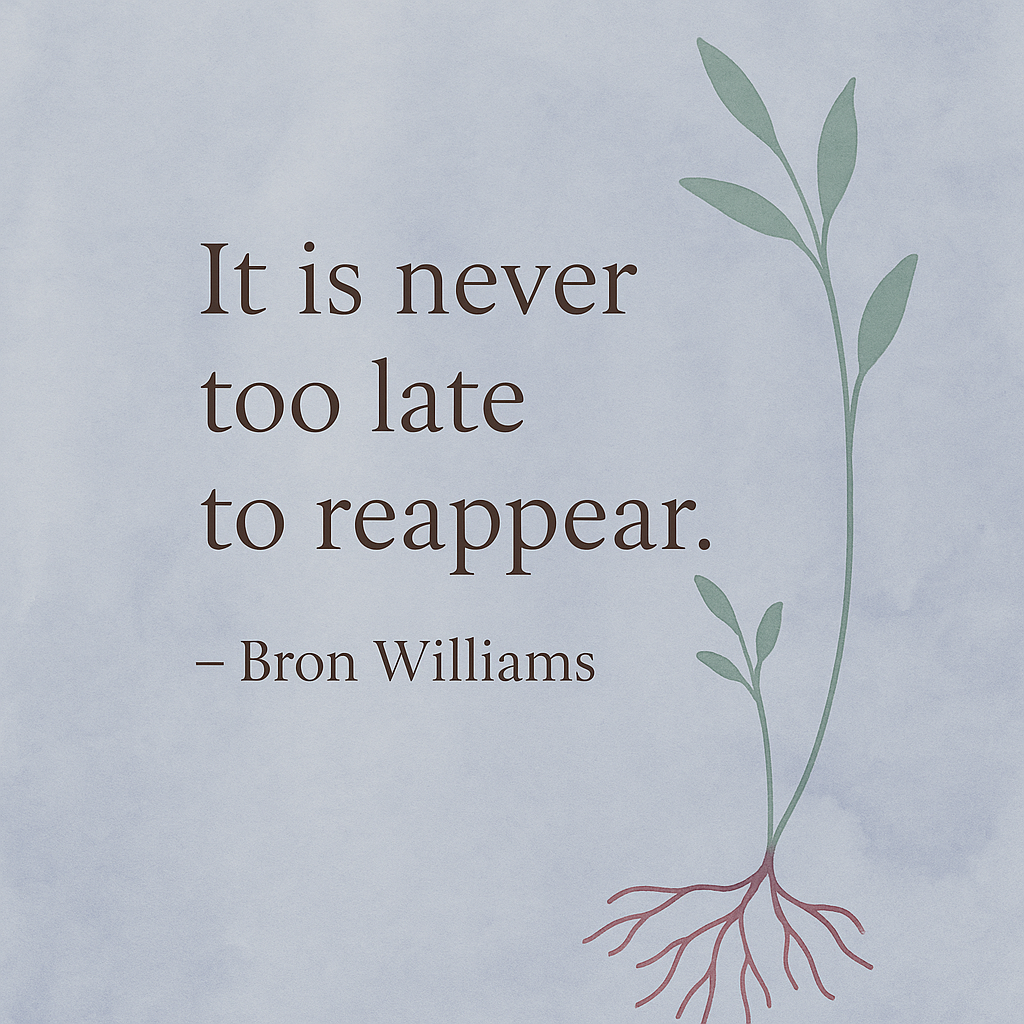Reclaiming Myself
The Quiet Undoing of Self-Erasure

There was a time – I was around the age of 40 - when I was quietly slipping away from myself, although I didn’t see it at the time. I’d just had my third son and I was depressed. My then-husband and I attended counselling, at which the psychologist gently suggested that I wasn’t just carrying my own depression - I was carrying his too.
That made sense to me. For most of my first marriage, I took responsibility for my husband’s mental health and happiness. I thought that was my role as a good wife. And I disappeared in the process.
What I can see now is that I’d engaged in self-erasure—the quiet, consistent dismantling of my own needs, voice, and presence in service of someone else’s. And I know I’m not alone, that self-erasure is something far too many women do. Often it’s praised—being selfless, loyal, sacrificial. But it costs us our vitality, our identity, our joy.
I’m learning that reversing that tendency is not a one-time act. It’s a steady, often painful practice of reappearing. Here’s what I’m doing to show up:
1. Name the pattern
Self-erasure is subtle. It’s saying “I’m fine” when you’re breaking. It’s not applying for the role because “he needs the spotlight.” It starts with noticing the moments when we shrink. Naming it robs it of power.
2. Reclaim desire
I had no idea what I wanted for years. Desire had been equated with selfishness. But wanting—to rest, to create, to speak—wasn’t wrong. It was the beginning of coming alive again.
3. Anchor in values rather than roles
Roles—wife, mother, leader—change or collapse. But values endure. When I reoriented around what I truly valued (courage, creativity, connection) I found a steadiness that no role could offer.
4. Make myself the subject, not the object
For so long I saw myself through others’ eyes. Now I ask: What do I see? What do I need? This re-centring is sacred work.
5. Practice self-reflection to foster action
Insight alone isn’t enough. Action is important, like setting boundaries and asking for what I need.
6. Be witnessed by others
Healing didn’t happen alone. I needed other women to see me, to hear me. In their gaze, I began to reappear.
7. Tell the truth of my life
This is the most powerful act of reemergence. Speaking the truth of that season - the depression, the numbness, the quiet ache for something more - has become part of my wholeness. I know now that telling the truth of my life – even if it’s hard for me (or others) to hear – is vital, something to honour.
I can look back at that younger version of myself now with compassion, not shame. She did what she could with what she knew. But I’m no longer her. I’ve stepped into the woman I was always meant to be. Not erased. Not hidden. Fully here.
Have you ever felt yourself fading? It’s never too late to reappear.